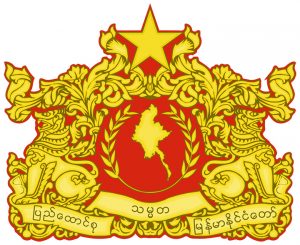I extend greetings with ‘Mingalabar’ to Deputy Speakers of Pyithu Hluttaw and Amyotha Hluttaw, Union Ministers, Chairman of Union Civil Service Board, Chairman of Nay Pyi Taw Council and its members, Governor of Central Bank of Myanmar, Chairman of Anti-Corruption Commission, its Secretary and members, Chairpersons of Pyithu Hluttaw and Amyotha Hluttaw Affairs Committees, departmental heads, diplomats, representatives from the United Nations Office on Drugs and Crime (UNODC) and the United National Development Programme (UNDP), personnel from international organizations, media persons and invited guests who are attending the International Anti-Corruption Day and the 16th Anniversary of the UN Convention against Corruption.
We feel proud to be able to organize this ceremony to mark the International Anti-Corruption Day in Myanmar like other member countries in the convention. We are also delighted to hold this ceremony in Nay Pyi Taw Council Territory and other States and Regions this year.
The government is on the path of reform and State building through an all-inclusive public-centered approach in implementing national reconciliation, peace-making process and economic policies for the emergence of a Federal Democratic Union. The government is making continuous efforts with strong political will on establishing a corruption-free community as it has understood that the deep-seated corruption is a major obstacle on this path.
Corruption is the most destructive problem for countries in modern time. It wasted resources of public, worsens economic and social inequality, create dissatisfactions and political extremisms among the public and undermines trusts on institutions. Moreover, corruption could exacerbate disparity and poverty among the public. It also disturbs public welfare and revenue sharing, and prevents the equal rights for participations in social, economic and political affairs.
Myanmar signed the UN Convention against Corruption in 2012, and enacted the Anti-Corruption Law in 2013. The Anti-Corruption Commission was formed in 2014. The commission was reformed in 2017 for effective actions. The fourth amendment on Anti-Corruption Law was made in 2018 to carry out fighting against corruption as the national task, to establish a clean government and good governance, to improve dignity and accountability of state departments, to prevent waste of state property and revenue, and to protect the interest of citizens. The meaning of corruption in this law is wider than bribery. With the stronger legal frameworks, the Anti-Corruption Commission has possessed more authority independently in taking actions against the loss of state revenues and property, in addition to taking briberies. Strict rules and regulations and strong enforcement are seen to be effective in taking action against corruption.
The President said that eradicating corruption involves the three steps of informing, preventing and prosecution. He said this involved distributing honesty promotion brochures in basic education schools, opening youth honesty camps in colleges and universities, and conducting workshops in states and regions to promote responsibility and accountability in government departments and businesses.
He said honesty and discipline are important pillars in politics, business and society. He said they are indispensable for peace and prosperity in conducting business and social interactions between individuals and societies. He said it is also necessary in national reforms in the executive, legislative and judicial branches of government. Their importance is an assurance for the need of honesty across the nation. They also need to be included for every individual and the private sector.
He added that honesty and straightforwardness are not just limited to the Union Government but also concerns the most basic institutions and departments who will be the first point of contact with citizens. He said they have formed Corruption Prevention Units and compiled a Code of Conduct as corruption prevention measures.
The President said maintaining value of codes of conduct and standards perpetuate honesty in prioritizing public benefit to private benefit. He said they are sustainable methods as they shut out likely paths for corruption. He said the UN Convention against Corruption is one of the fastest ratified international conventions in the world and since almost all 186 member nations have joined, it is slowly on the way to a Universal Ratification, and this only highlights global support to eradicate corruption. He said in addition to individual national efforts, cooperation among nations will eradicate transnational corruption and related cases.
The President said actively participating in combating corruption supports more than the emergence of a corruption-free environment, but also the formation of a successful society with rule of law. He said it also supports accountable institutions and grants accessible rights for all people and to possess fulfilling lives.
The President said the 16th Goal of the UN Sustainable Development Goals 2030 clearly indicates the importance of eradicating corruption. He said nations will promote peaceful and inclusive societies for sustainable development, accessibility to justice for all, and establishing accountable and inclusive institutions that provides benefits in all stages. He said these will be done through reducing flow of illegal cash, strengthening reclamation of lost national properties, reducing bribery and corruption, and establishing beneficial, accountable, responsible, transparent and inclusive institutions.
He added that the MSDP 2028-2030 is mainly linked with the Global 2030 Agenda for Sustainable Development. He said that is why in Pillar 1 of the MSDP on peace and stability strategic plan, it includes cooperation in eradicating corruption in order to enhance good governance, institutional performance and improve the efficiency of administrative decision making at all levels.
The President then reaffirmed Myanmar’s pledge to the aims of the UN Convention against Convention at the commemoration of International Anti-Corruption Day and the 16th anniversary of the Convention.
He said just in line with the motto “Let’s all unite in countering corruption”, continued cooperation between the executive, legislative and judicial pillars, civil servants, private organizations, CSOs, media entities and the general public is essential. (Unofficial Translation)


